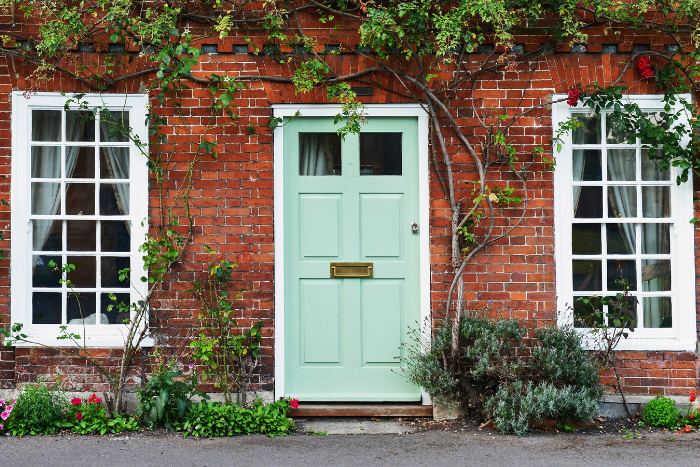
Letting out your holiday home to someone so they can enjoy it as much as you do can be a rewarding experience. However, letting your holiday home is not without risk, so it’s important to have the right holiday home insurance policy to cover both you and your tenants.
As the leading specialist provider of holiday home insurance in Ireland, OBF Insurance Group have created this handy guide to helping you get the right solution for your needs.
Minimising the risk to maximise the reward
At the end of the day, you’re letting a stranger into your beloved house. While you can talk to them beforehand, ask for identification and even take a deposit, you never know what they may get up to during their stay, either accidentally or purposefully. What’s more, there are two entities at risk – the property, which may become damaged over the course of their stay, and the person, who may injure themselves through no fault of their own.
From damage to fixtures and fittings to injury to adults and children, there will be a financial cost to you should something happen. Data from the UK shows that the average burst pipe claim is £14,000. That’s why it is so important to have the right holiday home insurance and holiday home contents insurance. Thankfully, you don’t have to manage all the risk yourself and there is a simple way to put some onus on your tenant too. Here are some simple measures you can take to ensure your guests will treat your house with the respect it deserves.
The Benefit of Holiday Home Booking Conditions
You break it, you buy it.
As with life, responsibility is a core ingredient of renting a holiday home and financial penalties are a sobering reminder of consequences of forgetting this fact. By clearly communicating certain conditions to your guests showing them that they are responsible for the costs of any breakage or damage in or to the property, you are improving the likelihood that they will treat your house with the respect it deserves.
Avoid sweating the small stuff
Security or Damage Deposits allow you to easily recoup small sums by withholding that proportion of this deposit. However, note the emphasis on ‘small’. Loss or damage greater than the security deposit will still need to be sought from your guests, who may incorrectly believe that the deposit limits or waivers further liability. For this reason, there has been a move away from security or damage deposits in the holiday letting industry. If it is something you are still interested in, don’t hesitate to seek advice from one of our insurance experts.
Three simple steps to check you’re properly covered
-
Ensure everything’s insured
Typically, holiday home insurance covers your property against any fire, storm or flooding that causes damage to the structure itself. But don’t forget about those items in your holiday home that are so important too. From the couch to the curtains, make sure to have them insured on a new-for-old replacement basis. Also, check to see if your holiday home insurance policy covers accidental damage to contents and the costly consequences of malicious damage. Finally, something that’s easy to overlook: if you make any home improvements or do any replacements, don’t forget to check your insurance details are updated to reflect this. You don’t want to be under-insured!
-
Don’t lose out through loss of rent
In the unfortunate event that you have to cancel a guest’s booking, your holiday home insurance policy should cover any loss of rental income. However, policies usually only pay out after an insured event such as a flood or fire that results in the holiday home becoming uninhabitable, and not for maintenance-related incidents like painting or building works.
-
Empty houses can lead to empty pockets.
If your property is unoccupied, the chances of burst pipes, burglary and rising damp increase, so ensure your property is still covered even when it’s empty. Check if you have a winter unoccupancy clause in your policy. If you do, check to see when it is in effect. Check also to see if, like many policies, you are required to completely drain the water system or just turn the water off if there’s not going to be someone there. Finally, check to see if it is a requirement that you inspect your property regularly. This is especially important if you live far away from your holiday home.
The best thing to do in the event that damage is done
While wear and tear is a natural occurrence with any property, there may come a time when damage is done to your holiday home that needs to be rectified. Sometimes taking the high road and the financial hit is the best option. For instance, if the damage is in the low-value bracket, you may be as well to absorb the cost rather than upset any relationship you have built or are in the middle of building with a guest. If more expensive damage takes place and your guest has admitted liability, you should look to settle with them directly for the cost of the repairs – they may even be covered themselves through their own travel or home insurance policy.
What if your guest is responsible but not so cooperative?
In this instance, you’re better off turning the issue over directly to your holiday home insurer. They’ll put right any damage you suffer as quickly as they can, with the least disruption possible.
Whatever you need, we’ve got you covered.
Holiday home insurance is often the last thing on someone’s mind… until they need it! While your holiday home insurance quote won’t cover every eventuality, by visiting the OBF holiday home insurance page, you can talk to one of our experts about the different levels of cover you can get, any queries you have and any eventualities you wish to get covered with a solution from Ireland’s leading specialist provider of holiday home insurance.